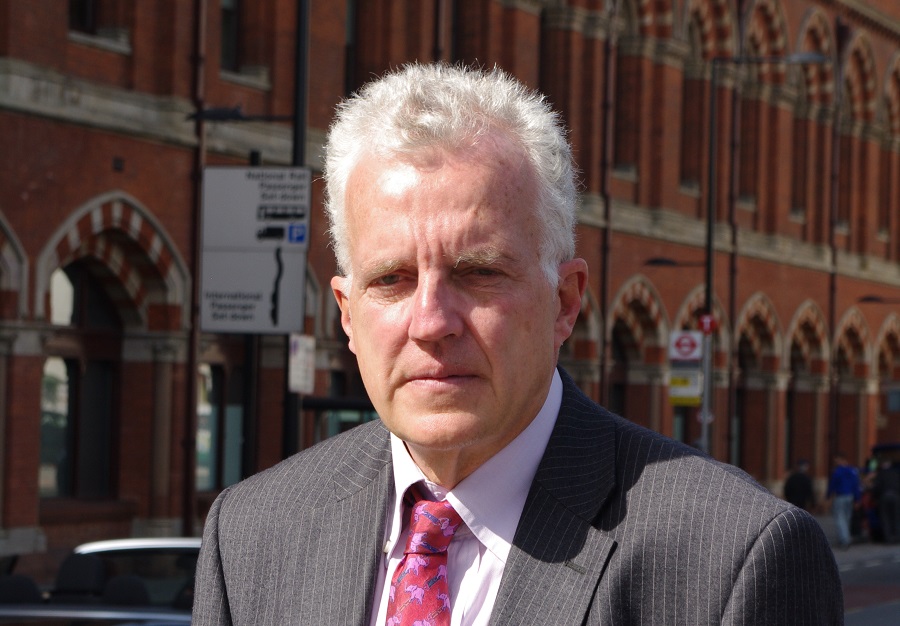When Jay Walder, who was confirmed on Thursday as the new chief of the Metropolitan Transportation Authority, arrived in London to be finance director of Transport for London in 2000, he was given a helpful word of caution by a colleague. Only one person counted in British politics, he was told, and that’s the chancellor of the exchequer – the strange name given to the person in charge of the government’s finances.
It was good advice, and an introduction to the complicated relationship between the transportation authority and the elected officials that will remind New Yorkers very much of the workings of the MTA.
At the time of Walder’s arrival, London was in the throes of a major and prolonged political controversy over its transportation system. Transport for London had just been created to run the Underground (subways) and buses under control of an elected mayor.
This created the inevitable territorial struggle between layers of government. Just as congestion pricing recently became a hot potato tossed between New York City officials and the State Assembly, with the MTA in the middle, in London the political football was the Underground.
The national Labour government had created an immensely complicated system to provide funds for the much needed refurbishment of the huge system. The new mayor, Ken Livingstone, and Transport for London executives were adamantly opposed.
The tube, as Londoners call their subway, was indeed in a sorry state. It is the oldest network in the world and had been starved of funds for many years. After coming to power in 1997, the Labour government realized that the tube, used by 3 million people per day, would fall apart without a massive injection of investment.
But rather than giving money directly to Transport for London, ministers created a massive $50-billion, 30-year program, which involved partly privatizing the tube by giving responsibility for maintenance and refurbishment to two private companies.
Both the mayor and Robert Kiley, a former CIA man and boss of the MTA in New York, who had been hired to run Transport for London, wanted to have direct control of the investment program, but the chancellor of the exchequer, Gordon Brown (who is now prime minister) held firm.
Brown felt that money given directly to Transport for London would be spent inefficiently and wasted. He created tremendously complex contracts based on the revolutionary idea of paying the contractors on performance, rather than on the amount of work they did.
Opponents argued that the plan was too complex and expensive and a recipe for the private sector to make a lot of money from taxpayers. The scheme was launched in 2003.
As finance director, Walder represented the Transport for London side during protracted negotiations. Then, thanks to his mastery of detail, he was able to ensure that the private companies stuck to terms of the hugely complex contract.
Walder, too, was deeply skeptical of the idea behind the program. In an interview with me in 2002, he explained that because the Underground has to keep running every day as a vital part of the capital’s transport system, it is impossible for the private sector to take on all the risks of its breaking down.
Indeed, in the intervening six years, the complex edifice of the scheme has virtually collapsed. One of the main contractors has gone bust, and the other is involved in a dispute involving billions of pounds in funds.
Taxpayers and fare-payers have been left to pick up the bill for an amazing experiment that went badly wrong.
Walder, though, gained a lot of credit for managing to make sense of and enforcing contracts that were written with little regard for the day-to-day running of the system. Transport for London had deliberately been given little control over the contracts under terms negotiated by the government, but the big disputes inevitably landed on Walder’s desk and he gained a reputation of playing hardball with the contractors. (Negotiating with the unions is a big issue for the London Underground, as it is for the MTA, but Walder was largely uninvolved with that.)
Walder also saw through the start of a smart-card system, recognized as a widespread success in simplifying travel. He is recognized to have been excellent at sorting out the complex contract for that project and the installation of equipment at all 250 stations.
Walder, a tall and imposing figure, knows his way better than almost anyone around transportation systems with their intricate funding methods. (Remember, he worked at the MTA earlier in his career, before his London stint.) He not only has a brain the size of a small planet, but is extremely articulate and has the ability to explain a hugely complex financial system in a way that, at least for a moment, everyone can understand.
His weakness is that he is not always a team player and cannot always see the forest for the trees. In the words of a former colleague in London, “I would love to have Jay implement a project for me, but I would not like to see him run an organization.”
Nevertheless, many senior figures in Britain thought that he should have been appointed to the top job in London when Kiley left in 2005, but Walder was not quite canny enough to deal with the arcane nature of the capital’s politics. It may well prove to be London’s loss and New York’s gain.
